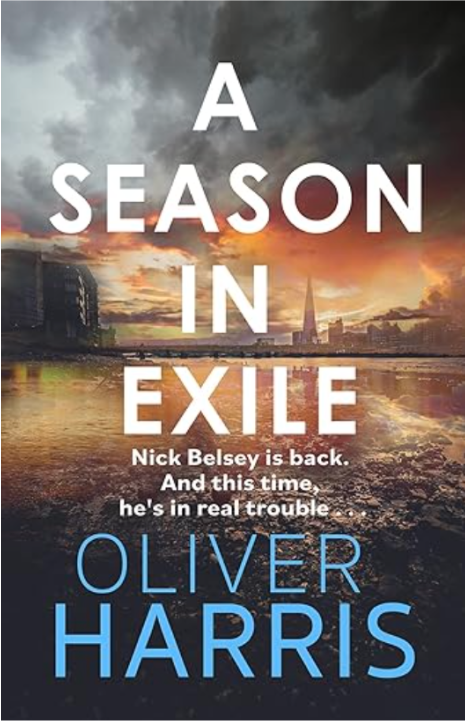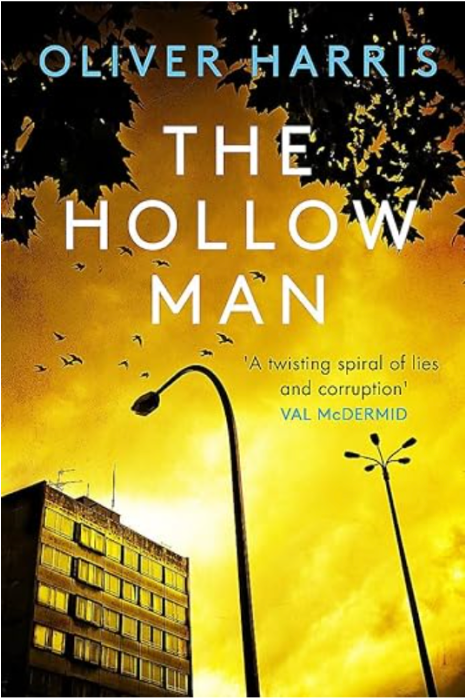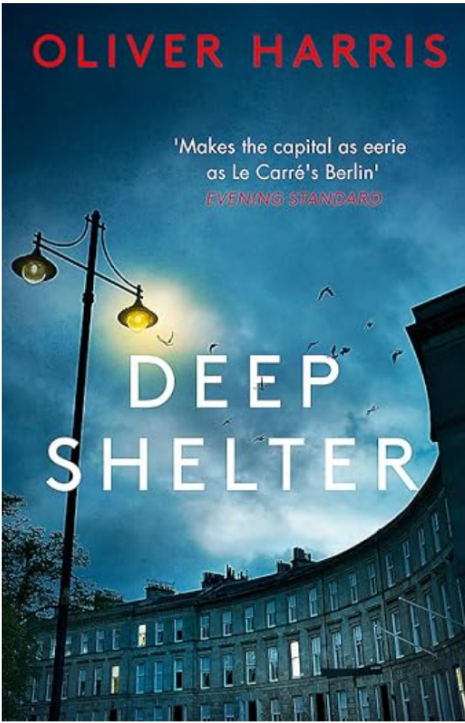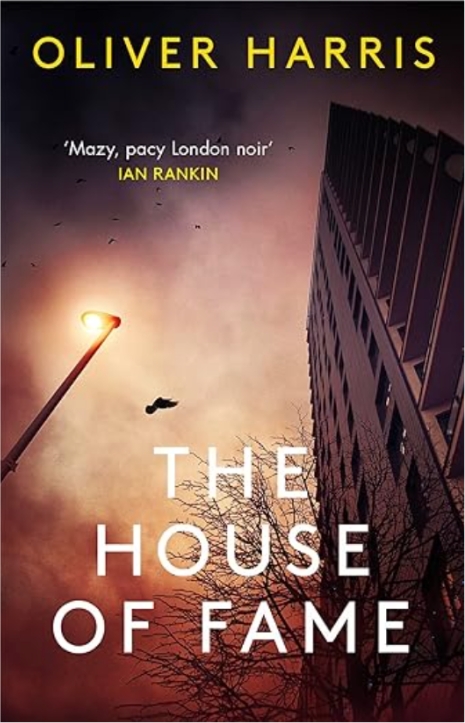Menu
Menu
—

Nick Belsey’s on the run.
Touching down in Mexico City, he doesn’t have much in the way of funds, but he has a new continent and surely that’s enough to start afresh. But it’s not as easy as that. An idyllic interlude in a coastal village is interrupted when men turn up who seem to know exactly who he is. And they have some very urgent questions.
DI Kirsty Craik had also hoped she’d left Nick Belsey behind her, in the wilder days of her career. When a five am call instructs her to track him down or she’ll be dead by Christmas, it seems he’s walked back into her life with characteristic commotion. Craik is forced to break the rules once more to find out what her former lover is up to.
She needs to save herself, and, just maybe, to save Belsey too.

‘Oliver Harris is an outstanding writer… he combines violence and romance, a sense of place and humour, in the same exciting way as, for example, Michael Connelly.’
‘An intelligent, brilliantly plotted and paced thriller.’
‘One of our finest thriller writers.’
‘Oliver Harris is as good as crime fiction gets and Exile is a twisty, captivating romp from start to finish.’

Extract from the book
No one stopped him as he disembarked. He looked for police waiting on the runway but it was empty. Benito Juarez airport sprawled beneath a petrochemical sunset, and Belsey paused at the top of the mobile stairs to fill his lungs. The stewardess grinned as if she was in on the joke.
‘Buenos noches, señor. Bienvenido a Mexico.’
Everyone went to collect their luggage. Belsey had no luggage, which made him feel curiously purposeful, strolling through the corridors alone, empty-handed. A bored-looking immigration official glanced at his passport and nodded him through. So he was first out into the glare of the arrivals hall, greeted like a celebrity by the taxi scammers and luggage handlers. Belsey realised he was smiling at them, amused that they took his existence seriously, the idea he had money and somewhere to go: an Englishman arriving in Mexico City on a Saturday night with nothing but the suit on his back. He was smiling because his life as he knew it was over and he was in Mexico and it felt beautiful.
Shutters started coming down on the airport’s facilities. He checked the signs fast: autobús, cambio de moneda, polícia, cerveza.
He emptied his pockets onto a ledge by a closed café and tried to figure out what resources he had. Twenty-six pounds in sterling and several cards of dubious credit. A cleaner mopped by his feet. An old man came up to him and opened a carrier bag, as if furtively revealing his shopping. It was filled with cartons of duty-free Marlboro. Belsey gave him a tenner and took a carton, put it under his arm and walked on. Sixteen pounds, three debit cards, four maxed-out credit cards, two hundred Marlboro. But a few things in his favour: the weekend, time difference, the fact that most businesses processed transactions in batches at the end of the day. All this created a fissure of opportunity between expenditure and consequence that might be wide enough for him to slip through.
At least two of the cards would let him go over the limit at the risk of heavy fines attached to billing addresses he no longer remembered. The concept of financial penalties felt weak. He tried a cash withdrawal but that didn’t work. Nor did the bureau de change, but he managed to buy a bottle of water from the 7-11 using an old Amex, which meant the card was alive. He had credit.
He skipped the international car-hire companies and went to the last on the row: Optima Auto Rentas. A sleepy kid roused himself and turned his computer on. Belsey asked for the most expensive car they had and was offered a Dodge Charger for forty dollars a day. He requested use of it for six days, gave his address in Mexico City as the Hilton.
‘Hilton Reforma?’
‘That’s the one.’
Belsey watched with a mounting sensation of weightlessness as the boy typed it in, took a carbon paper copy of the Amex, had Belsey sign a couple of forms, then found keys in a drawer beneath his desk. He led Belsey down to the car park, and ten minutes later Belsey was on the road.
This was the real test. The slip road fed into a crowded dual carriageway. Eight lanes of traffic poured into town with an attitude somewhere between a race and a carnival procession: high end SUVs and cars held together with string, all weaving and nudging, everyone driving like they were on the run a thousand miles from home, which was an edgy kind of incognito. Indicators weren’t a thing. Sometimes they came on but whatever it meant it wasn’t what he’d previously understood.
Neither were lanes. If you opened up a gap between you and the car in front someone would cut in so you had to become one with the flow. People threw the hazard lights on before braking.
Traffic cops stood on every corner, watching this communal death-wish without judgement. Belsey’s adrenalin pumped, everything very vivid now, a plan becoming real even if he wasn’t sure what it was. A carpet of concrete slum homes stretched up the hills either side towards a night sky dulled by light pollution. The silhouette of a volcano came in and out of view. Cars heading east had a coating of ash. He kept an eye on road signs. Mexico City didn’t exist. On the signs it was Distrito Federale. ‘Federales’ was the name painted in white letters on the paramilitary trucks tearing through the traffic: open-backed jeeps with men in black combat fatigues stroking their assault rifles. They were something different from the Policía Municipal, who cruised in convoys of seven or eight vehicles with lights and sirens on. Belsey kept alert, but after a while he realised there was no emergency: that was just how they moved. Or it was all an emergency. He stopped checking the mirrors every time they flashed.
The city grew around him, street-level chaos closing in: little cafés next to glass blocks with armed guards; heavy churches sinking crooked into the ground. No one was ever going to find him here. He reached the centre of town on a big, buzzing avenue called Insurgentes. Everything was fine. He let himself breathe.



